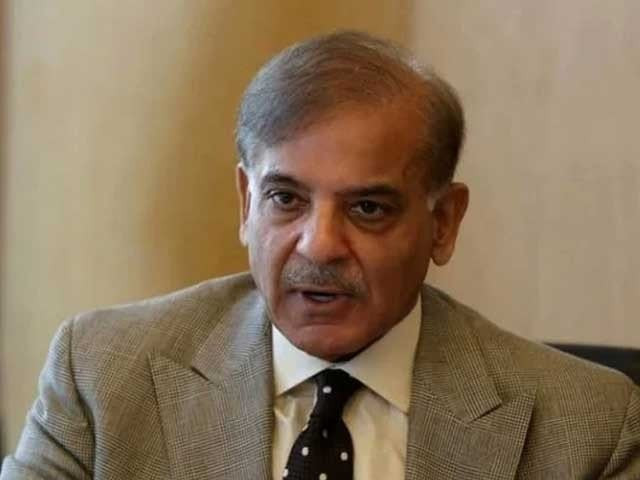A few days ago, after more than a month of decision-making paralysis, the Shehbaz Sharif-led government finally increased the fuel prices thus starting the process of removing heavy subsidy, a crucial condition put forth by the International Monetary Fund (IMF). This decision took place in the wake of a rapidly deteriorating rupee-dollar exchange rate and IMF mission’s refusal to revive the programme without meeting this condition. Given the precarious foreign exchange reserves position, exacerbated by continuously widening trade deficit, this decision should have been taken at least four weeks ago and yet the government refused Oil and Gas Regulatory Authority's (OGRA) summary to increase fuel prices multiple times.
According to Minister for Information and Broadcasting Marryium Aurangzeb, the major reason behind the reluctance was that they did not want to “punish the public for the previous government's worst incompetence, incapability and blatant mistakes”. However, this reluctance to “punish” the public ended up punishing the economy a lot as it led to putting more pressure on the exchange rate. When the Pakistan Democratic Movement (PDM) took over the government, initially the rupee strengthened as markets were expecting bold economic steps but then started to deteriorate again, once it became clear that the government was not showing the essential political will. Finally, under a lot of pressure, it increased the fuel price which at least for the time being has stalled the dollar’s free fall.
To what extent is the current government correct in blaming the previous regime? And if it is somewhat correct, does that justify the approach it adopted for the first 45 days? Going forward, does it have the political will and capacity to take bold economic decisions which could prove politically costly? What are the options available to it in the near future?
To begin with, there is no doubt that the three and a half years of Imran Khan’s reign witnessed a lot of economic deterioration. Partly it was due to the government’s incompetence and partly out of factors which were beyond anyone’s control. Pakistan’s external and internal public debt increased by a whopping Rs18 trillion during Imran’s government which was more than what the Pakistan Peoples Party (PPP) and the Pakistan Muslim League-Nawaz (PML-N) accumulated in their 10 years of rule combined. From September 1, 2018 to the end of February 2022, the Pakistan Tehreek-e-Insaf (PTI) government’s addition to public debt was on an average Rs14 billion per day, which dwarfs PML-N period’s average of Rs5.6 billion a day.
According to the World Bank data, the PTI’s regime also witnessed increased inflation as the consumer price index (CPI) rose from 5.2% in 2018 to more than 10% in 2019. During its three-year rule, it averaged around 9.6% compared to 4.6% in PML-N’s regime. While exports admittedly grew, their growth was more than offset by an even greater increase in imports which ended up putting enormous pressure on the foreign exchange reserves as well as the exchange rate. At the time of PTI’s ouster, the trade gap had widened to a whopping $35 billion in merely first nine months of the current fiscal year and is expected to cross $40 billion by its end.
In some ways, Imran’s ouster was a blessing in disguise for him as it allowed him to get away from the mess his own government had a substantial role in creating. Moreover, the manner of his ouster allowed him to weave a false yet effective narrative of foreign conspiracy which in turn has reignited his support base.
However, while we can at least partially blame the previous government for the economic mess which this government inherited, at the same time, this current set up cannot be absolved of its role in further exacerbating the situation. It can no longer hide behind the PTI government’s mismanagement.
When the current government took over, they knew they had an enormous task at their hands which was further exacerbated by the fact that theirs was a much more fragile coalition. In fact, on the day when the Supreme Court passed its landmark judgement restoring the assembly, the Chief Justice of Pakistan, during final deliberations before the judgement, had pointed out to Shehbaz that the country needed a strong government in order to avoid a Sri Lanka situation and therefore it would be a very difficult task for the coalition if it decided to take over. Here it is pertinent to mention that this set up also had the choice to roll back controversial electoral reforms and then go for elections. However, at that point, Shehbaz was adamant that his government was willing to take up the challenge.
Despite being aware of the challenges and after taking over, the present government has so far been slow to take bold and timely decisions and the resulting policy paralysis is hurting the economy and creating a lot of apprehension leading to stock markets shedding points profusely. For example, if the present coalition government had increased the fuel prices shortly after taking over, the dollar would not have taken this plunge, and the IMF programme would have also been revived by now.
Although eventually the current government has increased the fuel price, the problem is that under the IMF conditionality, it will be required to increase the price further in the near future. Moreover, it will also be required to pursue a tighter monetary policy while aiming for reduction in fiscal deficit. These steps will be harsh on the public and yet essential to address the external imbalances issue, which if left untreated, would surely lead Pakistan to a situation similar to Sri Lanka.
The aforementioned steps require a lot of political will which in turn depends not only on the characteristics of the leadership but also on actual political capacity. Unfortunately, the elections, even if held on time, are only 14 months away, a period which might prove too short for positive results from these steps to kick in. This inadequate time frame will constantly be on the minds of the government – particularly in the wake of Imran’s constant agitation – and will constantly affect their decision-making calculus, making them risk averse thus causing delays which may worsen the economic situation. Moreover, after the Supreme Court decision about dissident members of PTI, the coalition does not have much cushion in the assemblies either.
In light of the above, I think the Shehbaz-led government, unless it has watertight guarantees from powerful quarters, both internal and external, should dissolve the assemblies and handover the power to a caretaker set up. Right now, we need a setup which can make tough decisions without worrying about potential political costs. Therefore, ideally that caretaker setup should be composed of technocrats and of at least six months’ duration (preferably more) so that it has adequate time to navigate Pakistan during these rough economic times.
Although some may question the step of dissolving the assemblies as it may give some advantage to Imran, but I think since the new government has already rolled back controversial electoral reforms introduced by the last government, it has a fair chance in the polls. In any case, the present coalition will have far bleaker electoral prospects if it decides to remain in power during the current economic mess as it does not have the strength to take tough but necessary decisions and even if it takes those, the time frame is just too short to turn things around.



COMMENTS
Comments are moderated and generally will be posted if they are on-topic and not abusive.
For more information, please see our Comments FAQ